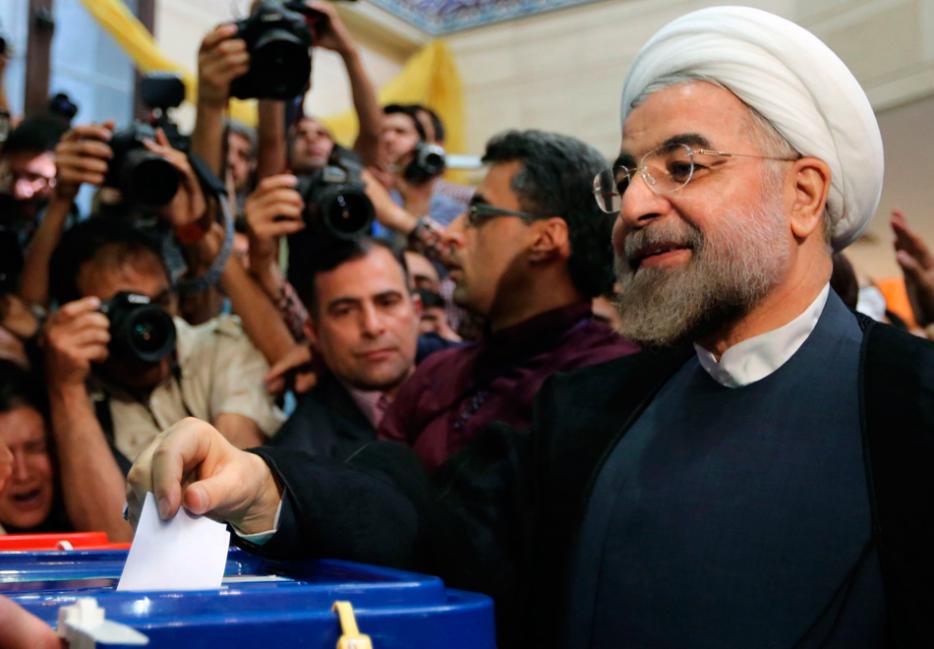The biggest lesson that Ayatollah Khamenei seems to have learned from the nation-convulsing protests after the 2009 Iranian elections is that unless you’re willing to look like Robert Mugabe in the eyes of the world, stealing an election outright isn’t actually a good idea. That’s especially the case when, like Khamenei, you have so many other levers to pull to keep turbulent presidents out of power.
Canadian Foreign Minister John Baird may not be wrong, then, to say that we can’t expect substantial changes after the election victory of Hassan Rowhani. Rowhani, after all, had to be unthreatening enough just to make it on the ballot. And even if that weren’t true, the man who’s been the lead negotiator with western powers as Iran has asserted its rights to a nuclear program probably isn’t going upend his country’s politics. Rowhani gives every appearance of being the guy who moves from post to post, tidying up and cooling angry tempers—not a revolutionary reformist.
So maybe Baird’s not wrong about Rowhani, but that doesn’t mean he isn’t, as Canada’s Foreign Minister, taking the wrong approach. Rowhani’s election—and that he won decisively in the first round in a high-turnout contest, for whatever that’s worth—could, gasp, be taken as a chance for western powers to actually engage Iran on matters of substance.
While the late Bush years were very good for Iran, after the Americans kindly installed a pro-Iranian government in Baghdad, the Obama years have basically all been terrible for Tehran, albeit mostly by accident rather than design. Yes, Obama and the US Congress have tightened sanctions against Iran, but the real disasters have been the fallout from the 2009 election and the Syrian Civil War.
The 2009 election kept Mahmoud Ahmadinejad in the president’s office as orchestrated, but the result was that Ahmadinejad’s terrible, terrible policy-making continued. While western conservatives loved Ahmadinejad because of his reliable habit of saying awful, awful things, the real story is that he was an objectively bad president, even by Iranian standards. His tenure included 30 percent inflation, 12 percent unemployment, and an outright economic recession in a major oil producer.
Meanwhile, the war in Syria has shaken the one major Middle Eastern state that Iran still had a functional relationship with. Iran’s support for the Assad regime has been expensive and isolating—never a good combination. The only good news for Iran coming out of the Syrian War is that Israeli intelligence was so wrong about the conflict early on that war hawks clamouring for a strike against Iran have a much harder job these days.
Which is all a long way of saying that Rowhani may not be Iran’s Thomas Jefferson, but he doesn’t have to be: it’s been a bad few years for Iran, and these things can sometimes offer a change of perspective for both sides. So the fact that the Americans are, to all appearances, offering an open invitation to restart negotiations with Iran after Rowhani’s election is a very good thing.






